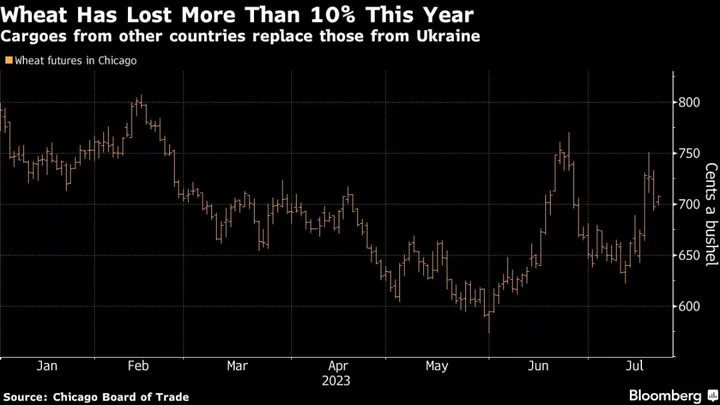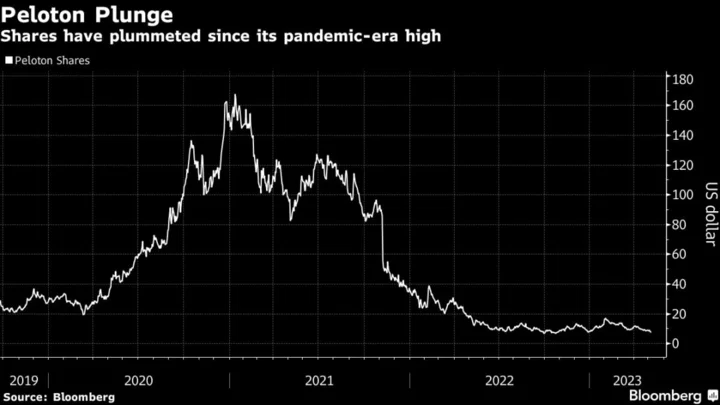Wheat and corn prices surged after Russia attacked one of Ukraine’s biggest Danube river ports, ramping up the risks facing Kyiv’s last major grain export route and global food trade.
A drone attack overnight hit the Danube port of Reni, according to people familiar with the matter, who asked not to be named discussing sensitive information. Ukraine’s southern operational military command earlier said on Facebook that a grain hangar at a Danube port had been ruined, without specifying which one or giving details.
Wheat futures for September delivery surged as much as 8.6% in Chicago on Monday, extending gains of more than 5% last week. Corn contracts for December rose as much as 5.6% to the highest level in nearly a month.
Reni, along with Izmail, is one of Ukraine’s biggest river ports for grain and is located on the Danube at the border with Romania. Local traders had been expanding capacity there in response to Russia’s sea blockade.
The attack was the latest in a series of moves by Russia to stifle Ukrainian exports, which have historically made an important contribution to global food supply. The collapse of the Black Sea grain deal last week — blocking Ukraine’s maritime corridor — and Russia’s subsequent attacks on Odesa port spurred expectations that Kyiv will have to double down on alternative routes, the most obvious being the Danube.
While it’s unclear how far the attacks will impact exports from Reni, the strikes increase operational risks. Seven people were injured by an Russian overnight drone attack on port infrastructure in Odesa region, Governor Oleh Kiper said on Telegram. Five of them were hospitalized. Reni is located in that region.
A spokesperson for A.P. Moller-Maersk A/S, which has some assets at Reni, said that a small number of containers at the yard had suffered minor damage, but that operations had resumed.
Romania said a grain silo, a fuel depot and cranes were damaged by the Russian drone attack on Reni, while air defenses repulsed an attack on Izmail. Security and surveillance measures have been tightened to ensure trade on the Danube runs smoothly, Defense Minister Angel Tilvar told a local television station.
The volume of crops transported along the Danube river reached 2.2 million tons in May, an increase of almost 900,000 tons from the end of last year. Those shipments overtook exports via the Black Sea corridor in May due to inspections slowing down the departure of freighters. The Danube is also drying in the heat, reducing capacity.
Russia also unleashed a fresh missile barrage against Odesa at the weekend, the largest in a string of almost daily strikes on the Black Sea port city after Moscow pulled out of the grain deal.
“These ports are the biggest hope for Ukraine to export its grains and oilseeds.” Rabobank analyst Carlos Mera said. “We believe Ukraine could export up to 2.5 million tons of grains and oilseeds per month through these ports. That would be enough to export most of its exportable surplus. But at the moment it is unclear how much damage is done and if Russia will perform frequent attacks in the future.”
Russia is trying to “make it difficult” for Ukraine to export grain via the Danube, Ukrainian Agriculture Minister Mykola Solskyi told Bloomberg TV in an interview last week.
--With assistance from Olesia Safronova, Christian Wienberg, Irina Vilcu and Gerson Freitas Jr..
Author: Áine Quinn, Kateryna Choursina and Daryna Krasnolutska









